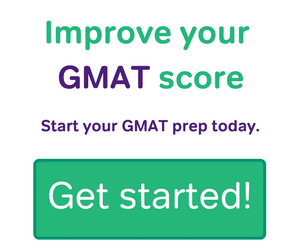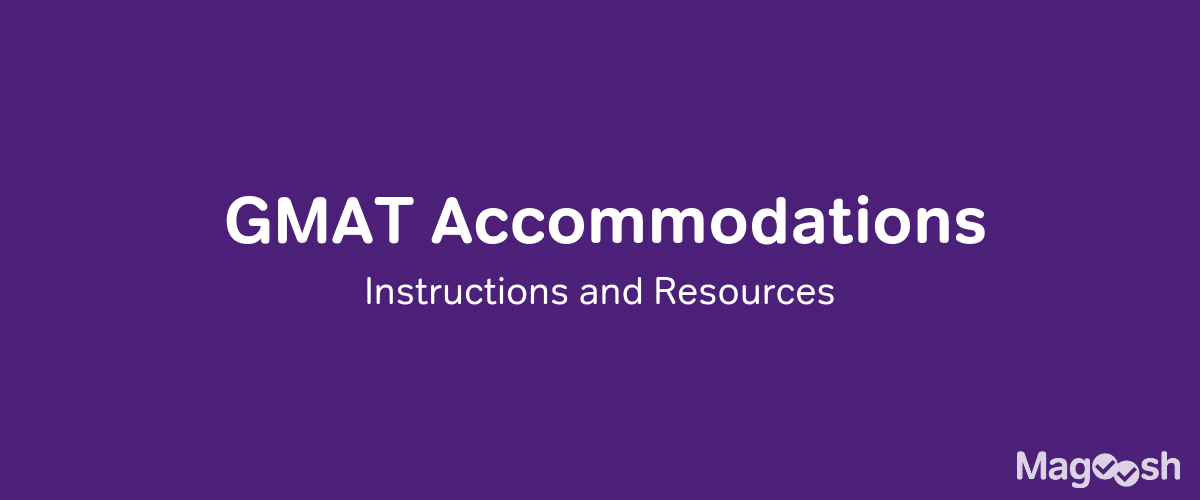Many will probably think my job unenviable. Each day, over the last couple of months, I’ve sat combing through the GMAT OG (Official Guide), analyzing questions and writing my questions—questions I hope are as similar as possible to official GMAT questions.
After weeks of this, I found myself wondering just how representative of the test these “official questions” were. After all, many of them have been in circulation for at least ten years, and let’s face it: the test has become more competitive than ever, with students prepping for well over a year, spending their money on GMAT courses that have turned cracking the test into a science (yes, I would fall under that description). So I wanted to know: had the test—as echoed by hundreds of students online—become more difficult?
To find out, I signed up to take the GMAT. Well, let me rephrase that: I signed up to “investigate” the GMAT. I wasn’t trying to get a great score (I skipped a couple of math questions because they seemed to take a lot of brainpower and scratch paper—something I didn’t want to use throughout the test). Of course, I wasn’t trying to bomb the test either, or I would have only seen easy and medium questions because of the standardized nature of the test. What I was doing was going through all of the different answer choices, trying my best to determine if the way the answer choices were written had changed from what was on display in the GMAT Official Guide and the GMATprep tests. I even—sigh—counted every single word in the GMAT reading passages to determine if, as the rumor had it, that the passages had become longer (they haven’t; they max out around 460).
The high-level findings
Quant
Here is what I learned: on the quant the test hasn’t really become harder. The GMAT uses many of the same tricks I’ve seen in practice materials. Sure, there were those two math questions that were as difficult—but not more difficult—as anything I’d encountered in the GMAT OG or the materials (Manhattan GMAT questions, by the way, can be much more difficult than anything on the actual GMAT). For the most part, I had to be very careful on a couple of Data Sufficiency questions, since my initial hunch was completely wrong and had I not paused to think of the question, I would have gotten it wrong (this is typically the case with well-written, difficult DS questions: they seem simple, but have a diabolical twist).
Verbal
As for the verbal section, here are the highlights: the Sentence Correction seemed more difficult than anything I’d seen in the official materials (though I have to account for the fatigue factor since, though I write questions, I haven’t sat for a full-length test in over a year). One thing that stood out was that the Sentence Correction questions was the correct answer didn’t hinge on knowing some grammatical tidbit (yes “Idioms”, I mean you). Rather, I had to consider the entire answer and the way it fit into the original sentence. While this is true on practice materials, it was even more pronounced on the test. The takeaway? Don’t burn the midnight oil memorizing idioms and other arcane rules. Instead, learn how to navigate through the sea of complexity that is the Sentence Correction questions so you can quickly home in on the correct answer.
The Critical Reasoning questions, for the most part, weren’t more difficult. As long as I thought of what the correct answer must be before actually diving into the answer choices I was fine. I felt like the correct answer was always clearly correct and I didn’t feel myself vacillating between wrong answer choices (a lot of this has to do with the fact that I’d spent the previous couple of months analyzing wrong answer choice types for the CR and every wrong answer type fell into a predictable category). To be fair, there was one question—presumably an 800-level question—that was more difficult than anything in the official material had prepared me for (I’m pretty sure I got it right; but it took a long time a couple of back and forth between a few answer choices).
As for the reading passages, they are pretty much the same: dense and not terribly interesting. There is a debate on some issue; the author introduces one or two viewpoints, contrasts them and typically—though not always—takes a position. The correct answer was always pretty clear given I understood the material. That is consistent with my experience with official materials; I struggle with a question when I haven’t carefully read the passage the first time. There was only one question I felt foiled on—and in all likelihood got wrong—so perhaps the hardest questions on the test are more difficult than any official questions currently in circulation (or, I might just not have read as carefully as I should have).
General takeaways
To state the obvious: the GMAT is a mentally draining test, and one needs to prepare for the ordeal by taking actual practice tests. Not to state the obvious: I learned that not paying too much attention to the clock was very helpful since it allowed me to focus on the questions. I feel students fixate too much on the clock and it distracts them from the flow of the test. When I did look at the clock, I tended to psyche myself out, even though I was far ahead of pace. This experience, of course, is very subjective, but I encourage people to play around with different strategies when taking practice tests. Looking at the clock sparingly might work well for many.
Finally, I think my experience on the test will help me write better questions—or at least questions that more accurately mimic those found on the test (don’t worry GMAT people: I was loosely inspired by the questions; no plagiarism here). In fact, I’ve already created some new SC questions—due out soon—that I hope will prepare those aiming for a high verbal score. Speaking of writing questions, it’s time I get back to work.






Leave a Reply